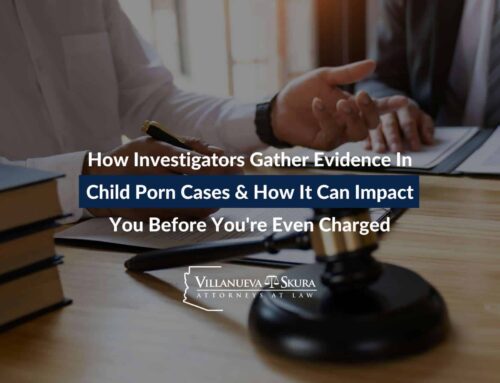Can An Adult Under The Influence Still Consent?
Evaluating Consent In The Context Of Alcohol & Drug Use
In the realm of criminal law, questions surrounding consent can be complex and challenging, especially when the issue of alcohol or drugs enters the equation.
You might find yourself wondering, can an adult under the influence still give valid consent? This is a crucial question, as it can have significant implications for cases involving allegations of sexual assault and other related offenses.
The Arizona Revised Statute (ARS) 13-1401 (A)(7)(b) addresses this crucial issue, shedding light on a legal gray area that affects many individuals facing charges of assault.
It’s essential to navigate this terrain with care, considering both the rights of the accused and the protection of potential victims.
That’s why an Arizona assault lawyer will carefully provide clarity on this complex matter to help you understand the legal implications surrounding consent and intoxication in Arizona.

Understanding Consent In Legal Context (ARS 13-1401 (A)(7)(b))
Consent is a voluntary and informed agreement or permission given by an individual to engage in a specific activity or action. It’s important because it establishes that action is mutually desired and agreed upon by all parties involved, ensuring that participants are willing participants and can make decisions about their bodies and actions.
In cases involving sexual assault, consent is a crucial factor because it distinguishes consensual sexual activity from non-consensual or criminal acts. Without valid consent, sexual activity can be deemed as assault or rape.
Consent serves as a legal and ethical safeguard to protect individuals from sexual violence, ensuring that sexual encounters are based on mutual willingness and respect and that no one is subjected to unwanted or coerced sexual acts.
Establishing the presence or absence of consent plays an essential role in determining whether a sexual encounter is lawful or constitutes a criminal offense.
In cases of non-consensual criminal acts or sexual assaults, the stakes are high, and the consequences can be severe. Consulting with an experienced assault lawyer is essential to ensure that the accused receives a fair legal defense and that their rights are protected throughout the legal process.
The Legal Implications Of Substance Use On Consent
The impact of alcohol and drugs on decision-making regarding consent is significant and can lead to complicated legal situations. Here’s an overview of the substance influence effect:
- Impairment of Judgment: Alcohol and drugs can impair a person’s judgment and cognitive abilities. Under the influence, people may have reduced inhibitions, impaired reasoning, and difficulty assessing risks. This impairment can make it challenging for them to provide informed and voluntary consent.
- Diminished Capacity: Intoxication can lead to a diminished capacity to understand the consequences of their actions. People under the influence may not fully comprehend the nature of the situation or the implications of their decisions, including consent to sexual activity.
- Coercion and Manipulation: When one party is under the influence, they may be more susceptible to coercion or manipulation by others. This can lead to situations where consent is not freely given but is the result of undue influence.
It’s important to note that the legal considerations surrounding consent and intoxication can vary by jurisdiction and the specific circumstances of each case. Consulting with a qualified assault lawyer is essential if facing charges or allegations involving consent and substance influence.
Legal Considerations For Individuals Under The Influence
- Incapacitation: Many jurisdictions, including Arizona (ARS 13-1401 (A)(7)(b)), recognize that a person cannot give valid consent if they are incapacitated due to alcohol or drugs. In such cases, engaging in sexual activity with an incapacitated person may constitute sexual assault.
- Voluntary vs. Involuntary Intoxication: Courts may differentiate between voluntary and involuntary intoxication. While voluntary intoxication (i.e., self-induced) might not excuse criminal behavior, involuntary intoxication (e.g., someone being drugged without their knowledge) could be a valid defense in some situations.
- Consent While Intoxicated: Some jurisdictions may consider consent given while intoxicated as invalid. This means that even if both parties were under the influence, sexual activity could still be deemed non-consensual.
- Role of Intent: In some cases, the prosecution must prove that the accused knew or reasonably should have known that the other party was incapable of giving valid consent due to intoxication. Intent to take advantage of someone’s impaired state may be a crucial factor.
Unpacking ARS 13-1401 (A)(7)(b): Understanding Consent & Incapacitation
Arizona Revised Statute (ARS) 13-1401 (A)(7)(b) is a specific provision within Arizona’s criminal code that defines a circumstance in which a person is unable to provide valid consent to sexual activity due to their mental state or incapacity.
Here’s the text of ARS 13-1401 (A)(7)(b):
“(7) ‘Without consent’ includes any of the following:
(b) The victim is incapable of consent because of a mental disorder, mental defect, drugs, alcohol, sleep, or any other similar impairment of cognition, and such condition is known or should have reasonably been known to the defendant. For this subdivision, ‘mental defect’ means the victim is unable to comprehend the distinctively sexual nature of the conduct or is incapable of understanding or exercising the right to refuse to engage in the conduct with another.”
In simple terms, this statute outlines situations in which a person is considered incapable of providing consent to engage in sexual activity due to various factors, such as mental disorder, mental defect, being under the influence of drugs or alcohol, or being in a state of sleep or similar cognitive impairment.
Importantly, it states that if the defendant knows or should have reasonably known about the victim’s impaired state, engaging in sexual activity under these circumstances can constitute a criminal offense, such as sexual assault.
This provision is crucial in establishing the legal boundaries for consent in sexual offense cases in Arizona and protects citizens who may not be able to provide valid consent due to their mental or physical condition.
Why You Need An Expert Assault Lawyer In Cases Of Consent & Intoxication
When facing allegations or charges related to sexual offenses, seeking the counsel of an experienced assault lawyer is crucial. An assault lawyer possesses the expertise to interpret the law, build a robust defense, and ensure your rights are safeguarded throughout the legal process.
If you or someone you know requires expert legal assistance in Arizona, reach out to VS Criminal Defense. Don’t navigate these complex legal waters alone—take the first step towards a strong defense and contact us today.
LISTEN TO THE PODCAST VERSION OF THIS ARTICLE

VS CRIMINAL
DEFENSE ATTORNEYS
1845 S Dobson Rd Suite 202
Mesa, AZ 85202
Phone: 480-923-9001
Email: info@vsattorney.com
AZ SEX
CRIMES ATTORNEY
1425 S Higley Rd #101 Unit 2
Gilbert, AZ 85296
Phone: 480-553-9440
Email: info@vsattorney.com
PHOENIX SEX
CRIMES LAWYER
1100 E Washington St Suite 154,
Phoenix, AZ 85034
Phone: 602-805-1212
Email: info@vsattorney.com
ARIZONA FELONY
DEFENSE LAWYER
3919 E Potter Dr
Phoenix, AZ 85050
Phone: 480-933-2329
Email: info@vsattorney.com





